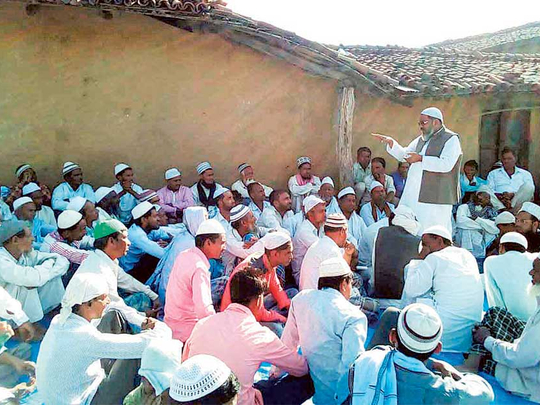
Patna: More than 800 Muslim families from the East Indian state of Jharkhand have returned dowry to brides’ families following a massive campaign against the practice, which was launched by social activist Haji Mumtaz Ali.
This is perhaps for the first time in India that families of grooms have returned dowry years after they received it.
Such is the success of the campaign that villages are signing up for it every day and openly taking vows to not give dowry. Initially the campaign was limited to the Palamu district of Jharkhand, but now it has spread to neighbouring districts, with dowry emerging as a major social evil.
Ali himself is startled at the massive success of the campaign, which he started on April 24, 2016, alarmed at the social evil plaguing the lives of thousands of Muslim families settled in Jharkhand from where he belongs. He never expected that it will catch the fancy of common men so soon.
What began as a silent campaign against this major social evil has now become a massive “social movement”. Its impact can be underlined from the fact that more than 800 Muslim families have so far returned dowry and many more are planning to follow suit. As per an estimate, around Rs60 million (Dh3.2 million) has been returned to the brides’ families so far.
“The success of our campaign is just astounding. Villages after villages are joining the campaign, and the people lining up to return dowry while expressing regret for their act,” Ali who launched told the media today.
He took the vow to eradicate the social evil after seeing the toll the practice took on many families. At his meetings, Ali has been appealing to villagers to lend their support to the campaign and present an example to society.
“I had not expected my campaign will such huge support of the villagers. This is a welcome change in the society. What is more pleasing [is], the marriages are now being solemnised without any exchange of money,” he added.
What is also significant about the campaign is that the villagers are openly regretting for taking dowry in the past and are vowing not to demand or offer the same in future. They say they are now “correcting” their stand by returning dowry to the bride families and expressing regret for their conduct.
One such villager is Salim Ansari. “I feel proud to say that what I had done in the past was wrong but am correcting it by returning the dowry to my daughter-in-law’s family,” Ansari told media.
Lending full support to this campaign, Muslim clerics have announced not to solemnise the marriage of people who seek dowry.
Social scientists have described it as unparalleled movement. “No doubt the villagers committed wrong by seeking dowry but their act of returning dowry and tendering apology for their act is simply exceptional,” said Sachindra Narayan, a prominent Patna-based social scientist.












